![People protesting the Dakota Access Pipeline march past San Francisco City Hall. Photo courtesy: Pax Ahimsa Gethen (Own work) [CC BY-SA 4.0 (http://creativecommons.org/licenses/by-sa/4.0)], via Wikimedia Commons](https://brettstewart.tk/wp-content/uploads/2017/01/download.jpeg)
Gottlieb didn’t realize he’d receive support from them in turn – support that has given new voice to his music and political activism.
After arriving at the Sacred Stone Camp, Gottlieb, 27, a writer for the volunteer-run People’s Tribune newspaper, sat down in front of the sacred fire where Sioux elders and youth were gathered. He heard stories that taught him about the “deeply spiritual lives” of Native Americans.
Gottlieb said that the gatherings at the fire were a opportunities for the people to pray for protection of their land and water from the harm they believe the controversial pipeline would cause. It was during this time that Gottlieb came to connect the voices of Standing Rock to movements around the country “over life or death struggles,” he said.
“I am with Standing Rock because it is a fight for so many important things: water, which is in fact life, and justice, not only for the Sioux and the native peoples of this country who have been oppressed and waged genocide upon for centuries, but for all Americans who deserve clean, safe, running water,” said Gottlieb.
The Standing Rock Sioux, along with hundreds of other tribes and allies from around the world, established the Sacred Stone Camp in North Dakota in mid-August as a protest against the Energy Transfer Partners’ Dakota Access Pipeline. Calling themselves “water protectors” and using the term “water is life,” those at the camp oppose the pipeline’s route, concerned that it will contaminate the Missouri River, the main source of water for the Standing Rock Sioux. Activists object to the company digging up what the natives say are their sacred land and burial grounds.
Now back in Chicago, Gottlieb continues to support their protest by playing his music at Standing Rock fundraisers throughout the city.
Gottlieb’s parents, Bob and Mary Ann Gottlieb, also traveled to Standing Rock in late November to bring winter supplies and physically stand in support.
“I don’t think we would have gone to Standing Rock if it weren’t for Adam because he has brought our awareness to a lot of things that don’t get covered in the news that we tend to pay attention to,” said Mary Ann Gottlieb.
Gottlieb traced his involvement in the Standing Rock movement back to One Tribe Movement, a group of musicians and friends who “were among the first” to join Sioux natives in their resistance to the pipeline, he said. Then, Gottlieb said, there came a phone call in October.
“The folks from One Tribe called me up and said that they were traveling the country with a group of Standing Rock elders and youth, and were raising awareness about their struggle,” Gottlieb said.
Gottlieb invited the group to stay at his parents’ home, which he said they did for three nights. During their time in Chicago, One Tribe Movement held a fundraiser at a Rogers Park coffee shop and collected donations to support the Sacred Stone Camp. One Tribe Movement and Gottlieb performed, and there were speeches from Sioux elders.
“Hearing the elder’s struggles with basic human rights was deeply humbling,” Gottlieb said.
Gottlieb wrote a song about an elder who stayed at his home, Kylo Prince. It shares an experience that Prince said he had with a police officer “shooting pepper spray at women and children” on the front line at Standing Rock.
Press play below to hear “Kylo” and see a slideshow of a Chicago protest.
Prince said these words in the beginning of Gottlieb’s song, directed towards the officer:
I want to thank you for giving our young ones scars because our scars define us as warriors. I want to thank you for trying to destroy the water because in doing so, we’ve been able to unite a whole bunch of nations that previously wouldn’t even get along.
Gottlieb’s band, Adam Gottlieb and One Love, share the writing credits for the song. Throughout the song, Prince also preaches the “Prophecy of the Rainbow,” a Native American legend where “all races unite as one.”
Kelli Love, one of the One Tribe Movement band members who stayed at the Gottlieb home, said that Gottlieb has strengthened the Standing Rock movement by spreading their message through the People’s Tribune, and writing the song “Kylo.”
“The music keeps us together, keeps us unified and helps us focus when we are being tested with violence on the front lines,” Love said.
Prince said that he was amazed that someone was inspired by his words and that he wants people to understand that the Standing Rock movement is a fight not just for people affected by the pipeline, but for everyone.
“It comes down to all of us standing together because it is about all of us now,” Prince said, “We all need water.”
Gottlieb has joined other Chicagoans and Sioux natives of Illinois to protest in the streets of Chicago. A couple hundred people marched in solidarity with Standing Rock from Federal Plaza to Trump Tower on Nov. 12, chanting “Water is life” and “The people united will never be defeated.”
Chicago has many of its own struggles that connect us to the ones at Standing Rock, including the recent discoveries of lead found in the city’s water, Gottlieb said.
“There were 111 Chicago public schools that were tested positive for dangerous levels of lead on May 16th,” Gottlieb said.
The Army Corps of Engineers announced on Dec. 5 it would not grant an easement for the Dakota Access Pipeline across the Missouri River. Prince said that, while this has granted the Sioux a “small victory,” their lack of faith in the government is keeping most people at the camp.
Gottlieb said that his fight is not over.
“We need to keep marching and to demand what we need in order to get to the next stage of our society, one that has a good outcome for everyone,” Gottlieb said.


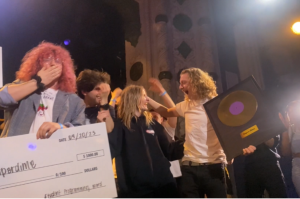

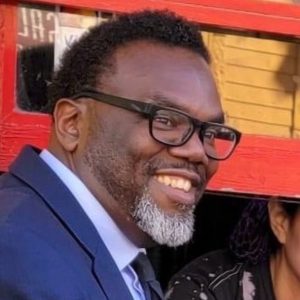


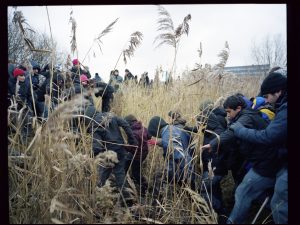


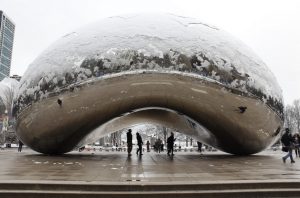


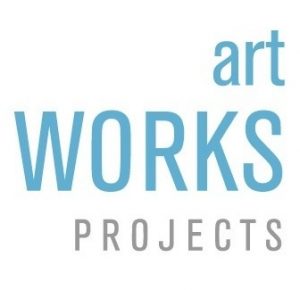







Be First to Comment